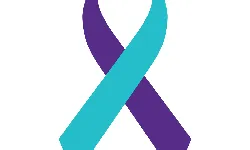
Suicide Prevention 
This course provides an overview of the science of suicide research, prevention, and intervention. It covers topics such as terminology, epidemiology, theories of suicide, modern approaches to research, and empirically supported approaches to prevention and intervention. It is not designed to address personal experiences with suicidal thoughts, suicide loss, or mental illness. If you are in need of help, please contact your local suicide prevention crisis center. ▼
ADVERTISEMENT
Course Feature
![]() Cost:
Cost:
Free
![]() Provider:
Provider:
Coursera
![]() Certificate:
Certificate:
Paid Certification
![]() Language:
Language:
English
![]() Start Date:
Start Date:
22nd May, 2023
Course Overview
❗The content presented here is sourced directly from Coursera platform. For comprehensive course details, including enrollment information, simply click on the 'Go to class' link on our website.
Updated in [March 06th, 2023]
This course, Suicide Prevention, will provide an overview of the science of suicide research, prevention, and intervention. Participants will learn about terminology, epidemiology, historical and contemporary theories of suicide, modern approaches to suicide research, empirically supported approaches to prevention and intervention, and the lived experiences of those with suicidal thoughts and attempts. It is important to note that this course is not designed to address personal experiences with suicidal thoughts, suicide loss, or mental illness, nor will it address assessing suicide risk among friends or family members.
Throughout the course, participants will be able to test their knowledge with quizzes. The last module’s quiz will be cumulative. It is important to remember that if you are thinking about suicide or are worried about someone else, please contact your local suicide prevention crisis center as soon as possible. Your life matters and help is available.
[Applications]
Upon completion of this course, participants will have a better understanding of the science of suicide research, prevention, and intervention. They will be able to identify key terminology, epidemiology, and theories of suicide. They will also be able to identify empirically supported approaches to prevention and intervention. Participants can apply this knowledge to their own work in the field of suicide prevention, such as developing and implementing prevention and intervention programs, providing support to those with suicidal thoughts and attempts, and advocating for suicide prevention initiatives.
[Career Paths]
1. Suicide Prevention Counselor: A Suicide Prevention Counselor is a mental health professional who specializes in providing counseling and support to individuals who are at risk of suicide or have attempted suicide. They provide individual and group counseling, crisis intervention, and referrals to other mental health services. They also work to create suicide prevention programs and provide education and training to the community. This job is expected to grow in demand as the need for mental health services increases.
2. Suicide Prevention Educator: A Suicide Prevention Educator is responsible for providing education and training to the community on suicide prevention. They create and deliver educational materials, workshops, and seminars to raise awareness and understanding of suicide prevention. They also work to create and implement suicide prevention programs in schools, workplaces, and other organizations. This job is expected to grow in demand as the need for mental health services increases.
3. Suicide Prevention Researcher: A Suicide Prevention Researcher is responsible for conducting research on suicide prevention and intervention. They analyze data, develop research studies, and evaluate the effectiveness of suicide prevention programs. They also work to identify risk factors and develop strategies to reduce the risk of suicide. This job is expected to grow in demand as the need for mental health services increases.
4. Suicide Prevention Advocate: A Suicide Prevention Advocate is responsible for advocating for suicide prevention and intervention. They work to raise awareness and understanding of suicide prevention and provide support to those affected by suicide. They also work to create and implement suicide prevention programs in schools, workplaces, and other organizations. This job is expected to grow in demand as the need for mental health services increases.
[Education Paths]
1. Bachelor's Degree in Psychology: A Bachelor's Degree in Psychology is a great way to gain a comprehensive understanding of the science of suicide research, prevention, and intervention. This degree will provide students with the knowledge and skills to understand the psychological, social, and biological factors that contribute to suicide, as well as the ability to develop and implement effective prevention and intervention strategies. Additionally, students will gain an understanding of the current trends in suicide research and prevention, and the ethical considerations associated with working with individuals who are at risk for suicide.
2. Master's Degree in Social Work: A Master's Degree in Social Work is an excellent way to gain a deeper understanding of the social and cultural factors that contribute to suicide. This degree will provide students with the knowledge and skills to understand the social, economic, and environmental factors that can lead to suicide, as well as the ability to develop and implement effective prevention and intervention strategies. Additionally, students will gain an understanding of the current trends in suicide research and prevention, and the ethical considerations associated with working with individuals who are at risk for suicide.
3. Doctoral Degree in Clinical Psychology: A Doctoral Degree in Clinical Psychology is an excellent way to gain a comprehensive understanding of the science of suicide research, prevention, and intervention. This degree will provide students with the knowledge and skills to understand the psychological, social, and biological factors that contribute to suicide, as well as the ability to develop and implement effective prevention and intervention strategies. Additionally, students will gain an understanding of the current trends in suicide research and prevention, and the ethical considerations associated with working with individuals who are at risk for suicide.
4. Master's Degree in Public Health: A Master's Degree in Public Health is an excellent way to gain a comprehensive understanding of the public health aspects of suicide research, prevention, and intervention. This degree will provide students with the knowledge and skills to understand the public health implications of suicide, as well as the ability to develop and implement effective prevention and intervention strategies. Additionally, students will gain an understanding of the current trends in suicide research and prevention, and the ethical considerations associated with working with individuals who are at risk for suicide.
Pros & Cons

Good information

Unlimited attempts to pass quizzes

Comprehensive and thoughtful lectures

Long discussion in video

Links not working

No real pictures or videos
Course Provider

Provider Coursera's Stats at AZClass
Discussion and Reviews
0.0 (Based on 0 reviews)
Explore Similar Online Courses

Understanding Game Theory in One Minute

Real Estate Photography Tutorial - Real Estate Photography Masterclass

Python for Informatics: Exploring Information

Social Network Analysis

Introduction to Systematic Review and Meta-Analysis

The Analytics Edge

DCO042 - Python For Informatics

Causal Diagrams: Draw Your Assumptions Before Your Conclusions

Whole genome sequencing of bacterial genomes - tools and applications

Meditation

Mental Health First Aid Skills -

Workplace Mental Health: A Managers Ultimate Guide
 Related Categories
Related Categories
 Popular Providers
Popular Providers
Quiz
 Submitted Sucessfully
Submitted Sucessfully
1. What is the main purpose of this course?
2. Which of the following is NOT included in this course?
3. What type of quiz will be included in the last module?


Start your review of Suicide Prevention